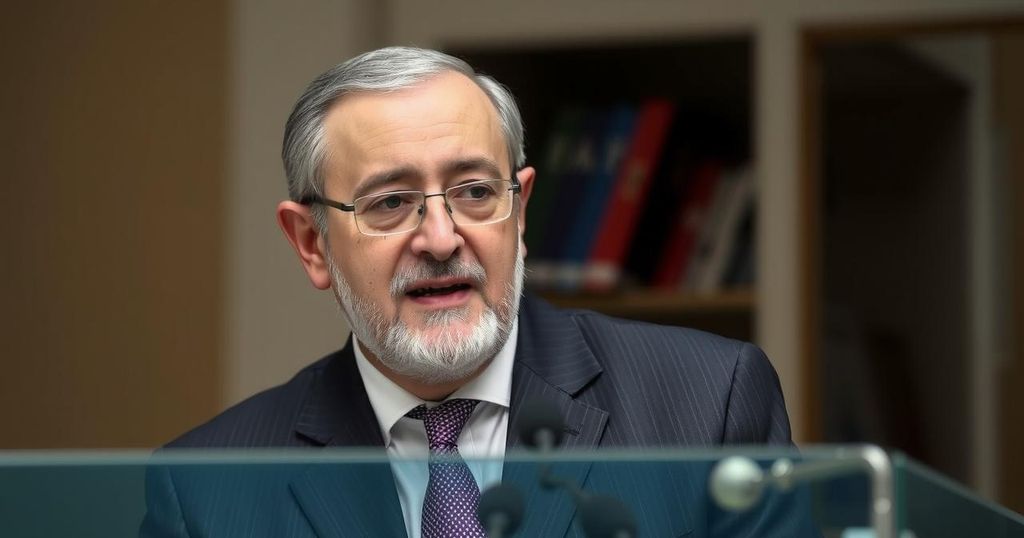Ahmad al-Sharaa announced that elections in Syria may not occur for up to four years as the country prepares its electoral infrastructure. He also indicated that drafting a new constitution could take around three years. Al-Sharaa underscored the necessity of re-establishing governmental authority following decades of Assad’s rule, while aiming for international legitimacy and future stability.
In a recent address, Ahmad al-Sharaa, the de facto leader of Syria, stated that elections in the country may be postponed for up to four years. This announcement comes as his group, Hayat Tahrir Al-Sham (HTS), has recently ousted the Assad regime. Al-Sharaa emphasized the necessity of preparing the electoral infrastructure before proceeding with elections and indicated that drafting a new constitution could take around three years. He highlighted the extensive damage inflicted on Syria over decades of authoritarian rule and the current phase of re-establishing the nation. Furthermore, he mentioned the planned dissolution of HTS during an anticipated National Dialogue Conference, although no specific date for this conference has yet been set.
The current political situation in Syria is marked by significant changes following the ousting of long-time ruler Bashar al-Assad. Ahmad al-Sharaa, also known as Abu Mohammad al-Jolani, has taken a leading role in the interim government formed after this upheaval. This government seeks to establish a new governance framework, including a constitution aimed at preventing past mistakes. The need for international legitimacy remains high, as former jihadist leaders like al-Sharaa look to transform their image and engage diplomatically with various nations, signaling a potential shift in Syria’s geopolitical alliances.
The remarks made by Ahmad al-Sharaa underline a critical juncture in Syria’s political transformation following the fall of the Assad government. The acknowledgment of a prolonged electoral timeline and the intention to draft a new constitution reflects an emphasis on rebuilding the state’s governance structures. Additionally, al-Sharaa’s effort to gain international legitimacy and foster diplomatic relations illustrates a strategic shift in Syria’s foreign alliances, particularly with regional powers such as Saudi Arabia.
Original Source: www.cnn.com






